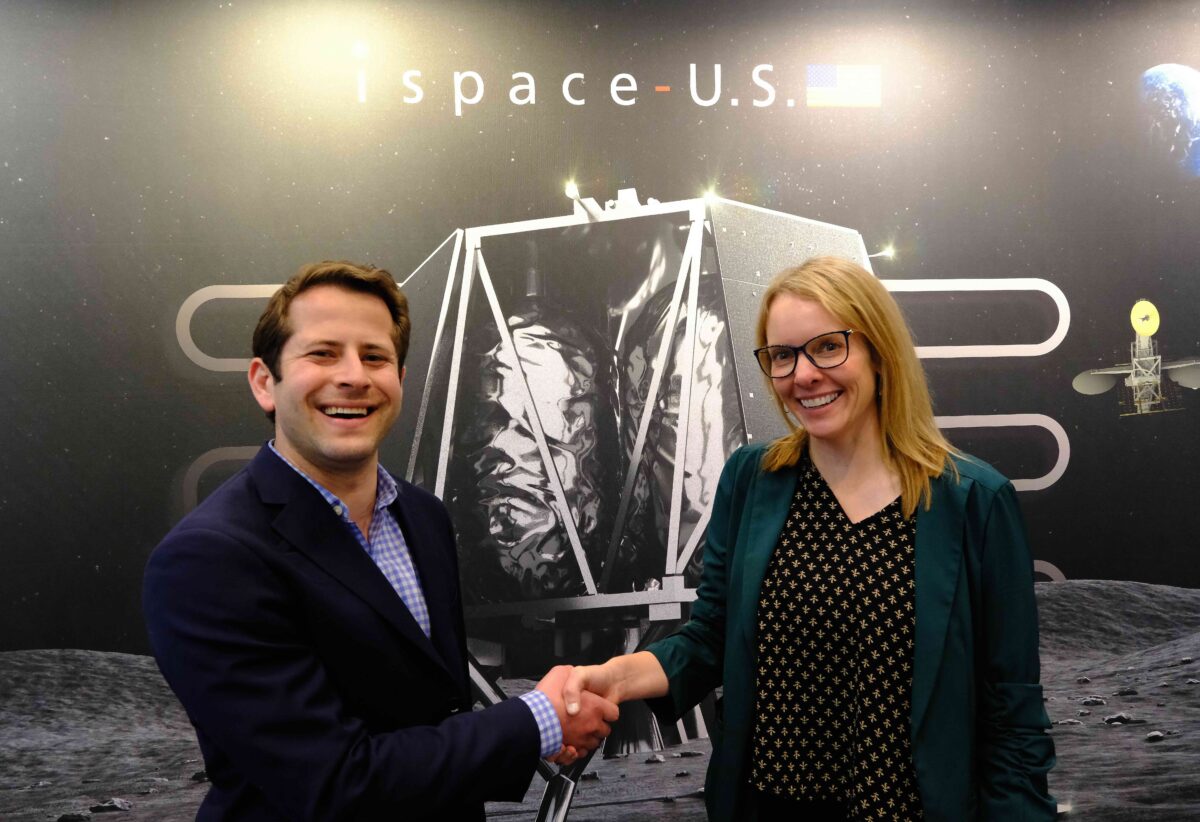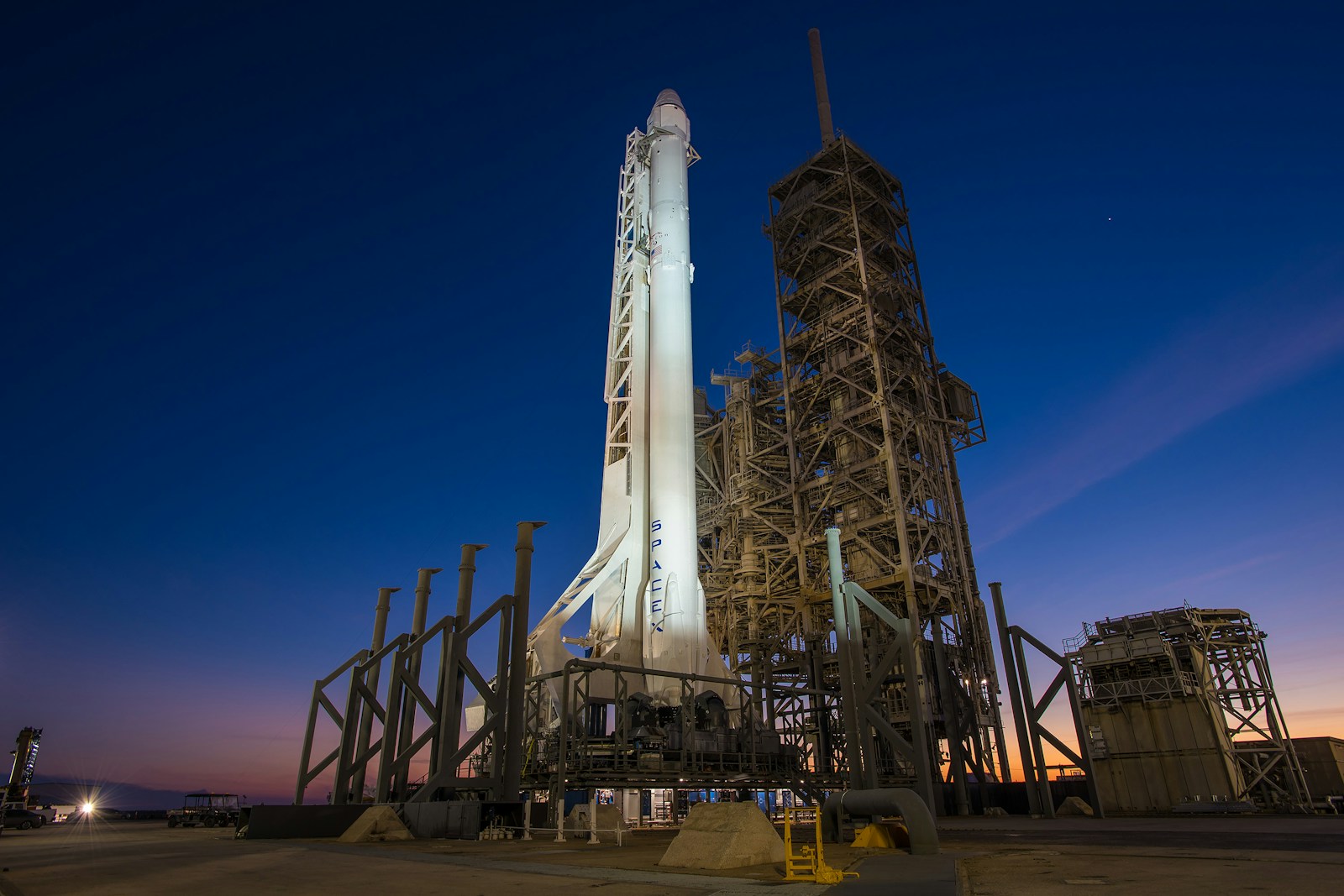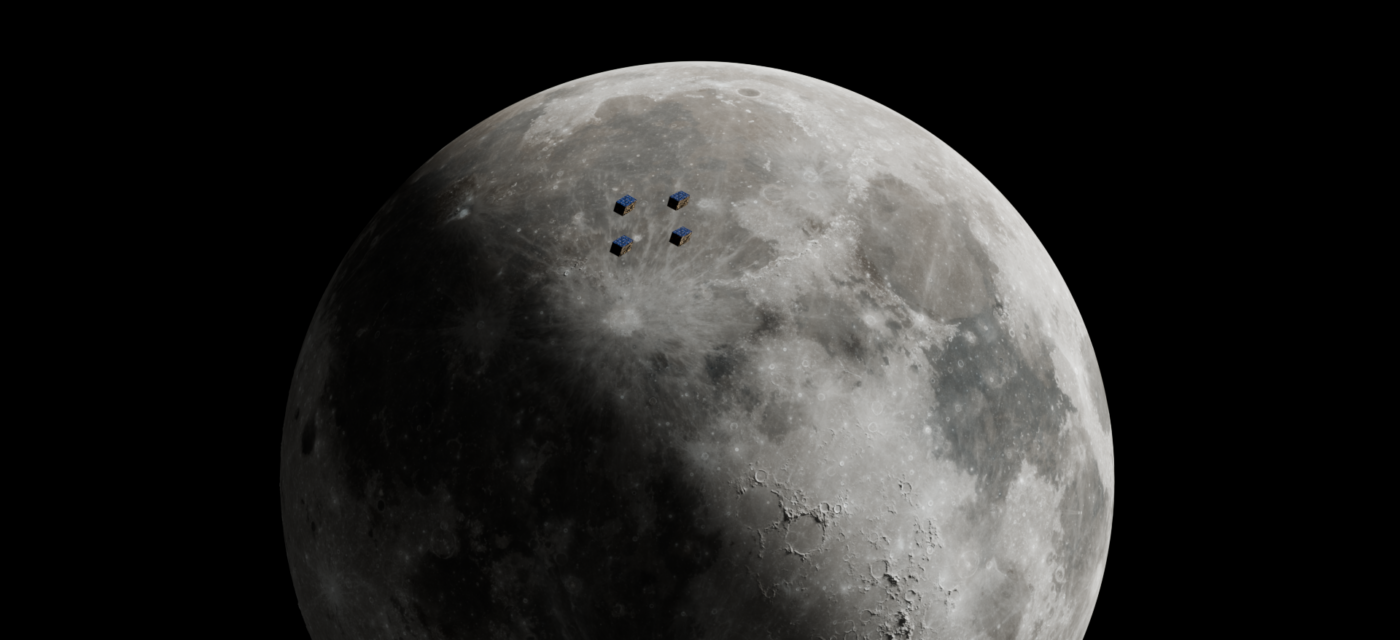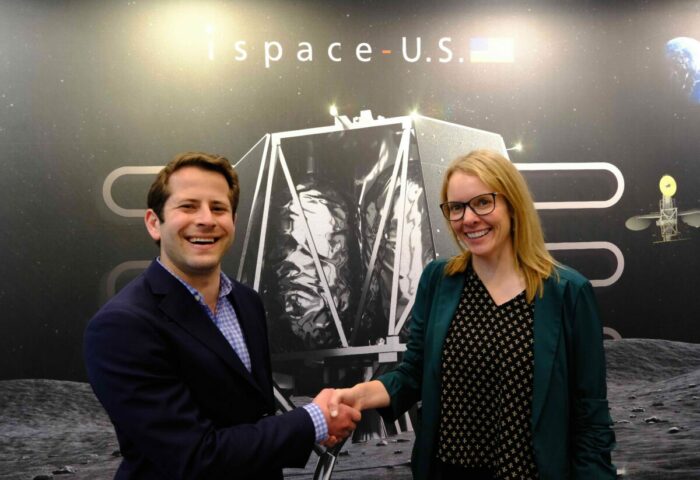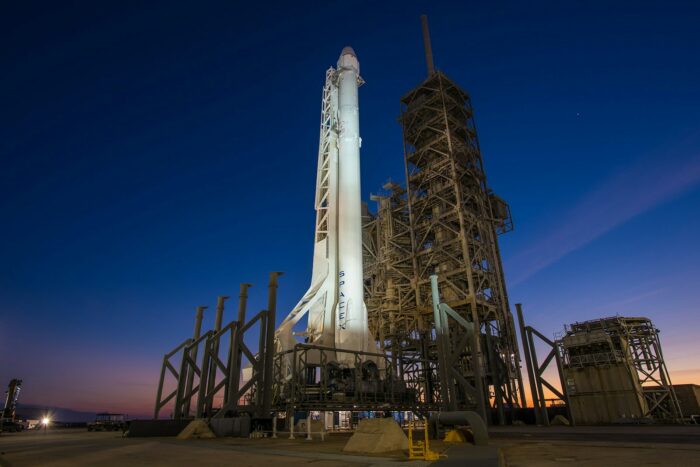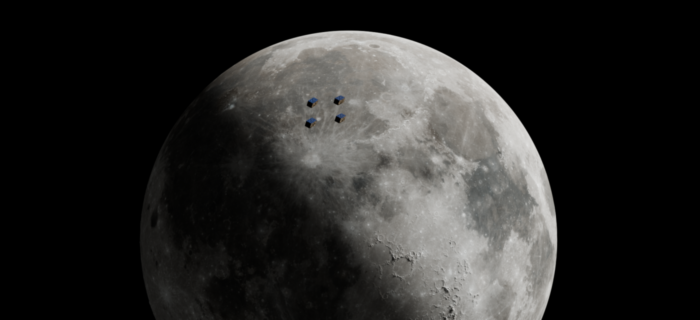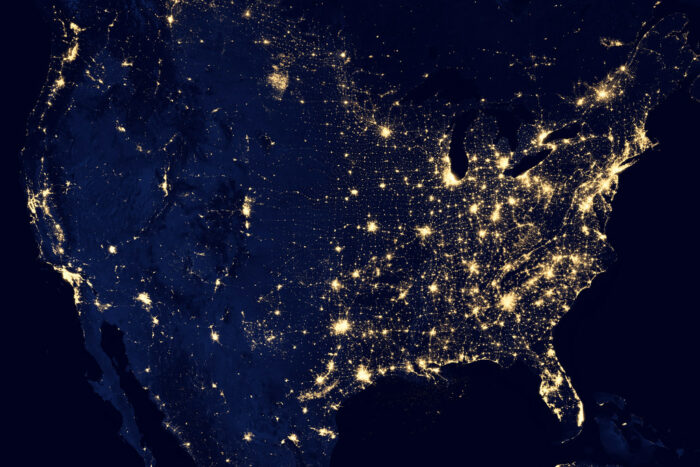by Julia Seibert
Feel like exploring the universe, but are lacking in the spaceship department? For a few hours, your sofa might do the job along with the best movies about space! With a whole cosmos brimming with inspiration, there exists no shortage of movies bringing space down to Earth, helped by a sprinkling of Hollywood magic. Within the genre, there is something for everyone.
If space wars and laser guns are your thing, you should feel right at home. Other space films focus more on the human side of space exploration, recreating real space pioneers’ lives or imagining the effects of isolation and loneliness on an unfortunate crew. Sound depressing? Exploring how Earthlings might act in the face of cosmic calamity is another popular topic. On a more philosophical level, some films seek to provide insight into the most fundamental questions of our time, ruminating on humanity’s place in the universe and whether we have a future within it. Oh, and aliens frequently make an appearance, too. Below is a list of the top 20 best space movies that we have selected for you
Table of Contents
Toggle20 Best Space Movies
1. Star Wars Episode IV: A New Hope
Kicking this space movies list off in true sci-fi style, Star Wars Episode IV: A New Hope, released in 1977, marked the beginnings of a franchise captivating the imaginations of nerds and ordinary mortals alike. It is 1970s cheese at its finest, featuring aliens, laser guns, and light sabers set to a bombastic score within a recognizable good-versus-evil storyline. With the real-life space age of the 1960s still very much in the public’s consciousness, the film and its sequels’ instantly recognizable characters and ambitious visual effects would go on to spawn countless Lego sets and Halloween costumes as well as a plethora of catchphrases. Jedi Master Obi-Wan Kenobi’s line ‘may the force be with you’ even led to May the Fourth becoming Star Wars Day. As far as cultural significance goes, this legendary space movie is a must-watch.

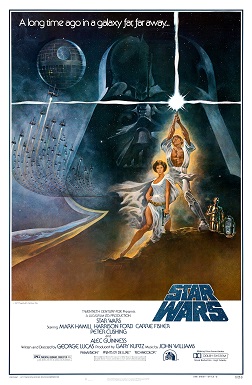
2. Rogue One
From all the sequels, prequels, and whatnots arising from the original Star Wars trilogy, Rogue One stands out as unique. Released in 2016, almost 40 years after the beginnings of the franchise, this space film’s events take place right before A New Hope. It therefore includes many similarities to its predecessors, such as its style of plot, musical score, and overall setting, but Rogue One shines as a standalone film. Starring a motley crew of rebels and robots on a mission to save the galaxy, fighting both stormtroopers and bureaucracy along the way, the film is more akin to a war drama than a sci-fi flick. Thanks to decades of cinematic development and a set of (almost) completely new characters, it requires little to no prior knowledge of the Star Wars universe to comprehend. But nerds need not panic: plenty of Easter eggs hint at happenings in later (earlier?) films.
3. Star Trek II: The Wrath of Khan
Hot on the heels of A New Hope, Star Trek’s first venture into cinema in 1979 did not go down too well with critics. After removing creator Gene Roddenberry from production, however, the second film – 1982’S Star Trek II: The Wrath of Khan – broke box-office records and became a resounding success. A sequel to the 1967 episode ‘Space Seed’, this thrilling space movie sees the characters a little older and wiser, with Kirk taking on an admiral position, though he comes out of retirement after hearing about the movie’s villain Khan, a disgruntled outlaw previously exiled by Kirk. Complete with a space battle and a Vulcan nerve pinch, it does not get much more sci-fi than this.
4. Alien
If the above movies about space have too few aggressive extraterrestrials for your taste, try Alien; chances are, you may never want to see one again. The 1979 sci-fi horror film was intended by director Ridley Scott to be an ‘unpretentious, riveting thriller, like Psycho or Rosemary’s Baby’, and it is these slasher-iffic elements meeting the mysterious expanse of space and creatures within it that make Alien one of a kind. On their way back to Earth, a crew of astronauts are stalked by – spoiler alert – an alien, which somehow made it aboard their old, creaky spaceship. The confined setting, the gore, the tense atmosphere… throughout its runtime, the film never lets you forget its tagline: in space, no one can hear you scream.
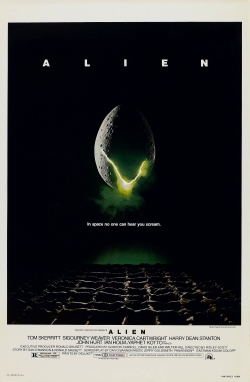
5. Apollo 13
Thankfully, Alien is not based on real events, but other hair-raising scenarios have indeed occurred on real-life spacecraft; just ask the crew of Apollo 13. Apollo 13 is one of the best space travel movies that will keep you on the edge of your seat and remind you why it’s considered a must-watch. The 1995 dramatization of the ill-fated 1970 lunar excursion – wherein, after the loss of the service module’s oxygen, the crew had to somehow survive the trip back to Earth before even reaching the moon – is often lauded as one of the most accurate space movies of all time. Though the film was based on commander Jim Lovell’s book recounting the experience, some creative liberties were taken, including changing Lovell’s original panicked utterance of ‘okay, Houston, we’ve had a problem here’ to the classic ‘Houston, we have a problem’ in the film.
6. First Man
Given the success of Apollo 13, the monumental 1969 lunar landing was too good a plot for Hollywood to pass up. First Man, released in 2018, follows a young Neil Armstrong during the leadup to Apollo 11 as he struggles with personal tragedy and professional turbulence. Again, this movie is based on Armstrong’s biography of the same name, and features little historical discrepancy. First Man’s uniqueness lies not in its depiction of a man on the moon, in this way the movie is not only about space, but in its examinations of sociopolitical climates at the time, developments of the Gemini and Apollo programs, and Armstrong’s life and motivations, all of which eventually culminated in the landing.
7. Sunshine
Moving back into the world of fiction, 2007’s Sunshine, a psychological thriller set in space, is not for the faint of heart. In this tense movie about space, set in 2057, the sun is dying and Earth is freezing. A team of astronauts is sent to chuck a nuke into the star to reinvigorate it, but their trip is not an easy one. Without giving too much away, the plot features an amalgamation of things you do not want happening on your spacecraft, ranging from technical failure to psychological disarray. The visuals are spectacular, with the hysterics backlit by the ever-encroaching star. The film might be especially compelling for fans of physicist and BBC presenter Brian Cox, who advised on the film’s productions and served as inspiration for Cillian Murphy’s character. Cox notes that while the movie is not scientifically accurate about space, it aims to ‘get across a feeling of what it’s like’ being a scientist in this unsettling setting.
8. Moon
There is trippy, and then there is 2009’s Moon. Despite being an almost complete one-man show (plus a robot companion), this low-budget space film has more plot twists than you could count. Like the film’s name suggests, the story takes place on the lunar surface, where the sole worker of a base is approaching the end of his three-year shift overseeing mining processes. As he begins to go stir-crazy from isolation and homesickness, he suspects that all is not what it seems on the quiet, lonely outpost.
The film is a slow burner, with little opportunity for orbital battles, but is no less compelling as it focuses more on the psychological and moral facets of the plot rather than its sci-fi setting.
9. Gravity
Another snapshot of solitude in space is shown by 2013’s movie Gravity, which portrays first-time astronaut Ryan Stone station-hopping in orbit after a catastrophic space debris strike. Seemingly cursed by bad luck and plagued by her past, Stone’s only aim is to make it back to Earth in one piece. Despite its setting, director Alfonso Cuarón’s intention was not to create sci-fi, but ‘a drama of a woman in space’. As a result, many scientific claims in the film cannot be taken as fact, including simplified orbital mechanics and understated distances between space stations in orbit. But education is not the film’s objective. Rather, it is a survival tale, exploring the effects of shock and tragedy on the human mind in a hostile setting. Still, the recreation of the zero-g environment aboard, for example, the ISS (International Space Station) should satisfy the space freaks, too.
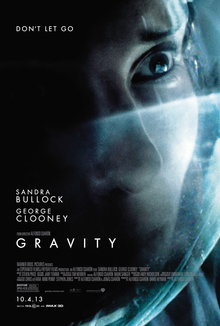
10. The Martian
The setting of space seems to lend itself particularly well to depicting isolation, and The Martian is yet another examination of the theme. This time, you might have guessed, the unlucky astronaut is stranded on Mars, presumed dead and abandoned by his crewmates after a mission gone wrong. The 2015 space film follows astronaut Mark Watney’s lone survival on the red planet, as well as his colleagues’ reactions to his fate. As with most space movies, creative liberties such as a denser atmosphere and higher gravity of Mars were taken, as noted in The Guardian by Dr. Robert Zubrin, founder and president of the Mars Society. But Zubrin also praises it as ‘the first movie that attempts to be realistic and that is actually about human beings grappling with the problems of exploring Mars’, highlighting the film’s can-do attitude on Martian exploration amid stagnating real-life plans.
11. Ad Astra
2019’s Ad Astra pairs sci-fi and dystopia, with a dash of family drama thrown in one space movie. Strange power surges threaten life on Earth, and protagonist Major Roy McBride is sent to Mars to investigate them on suspicion that they come from his father’s ship out near Neptune. His journey pockmarked by a slew of manmade obstacles of varying degrees, he reflects on familial qualms against a backdrop of the inky-black cosmos. This space film imagines a future where humans have bases on the moon and Mars and the consequences that come with them, both logistical and ethical. The story does feature several inaccuracies, with some propulsion methods and the plot-driving power surges residing squarely in the realm of fiction. Still, the film’s storyline and themes might appeal to those willing to forego the scientific side of things and simply imagine a human presence in space.
12. Proxima
Exaggerated in Ad Astra, space travel’s strenuous effect on relationships with family and friends back home is well-documented, and takes hold every time an astronaut blasts off into orbit. The 2019 Frenchmovie about space, Proxima, examines this in more detail, following an astronaut as she prepares for a perilous mission of a lifetime while struggling to maintain a relationship with her young daughter. Most of the film takes place during the training stages on Earth, with the characters preparing for the moment of liftoff and goodbyes. The film highlights the juxtaposition of the grandeur of space exploration and the human toll, a theme often mentioned but seldom focused on in this genre.
13. Aniara
It is not only separation that affects the human psyche. Cramming people into a spaceship and accidentally sending them into the deep cosmos does not exactly sound great for morale, either. In 2018’s Aniara, this regrettable scenario befalls the hapless crew of a ritzy spaceship initially headed for Mars amid Earthly disasters. The ship is knocked off course into deep space, and passengers are now faced with the Sisyphean task of coming to terms with their fate. Though it features no light sabers or aliens, this space film is spine-chilling in its own right. It is akin to a study in human nature, touching on themes of religion, artificial intelligence, and hope as the ship drifts ever further away from home.
14. Don’t Look Up
Space can be plenty dangerous without anyone leaving the planet. The cosmos has been known to hurl a space rock or two at our planet in the past, and the 2021 satirical film Don’t Look Up imagines how the modern world might handle such a situation. In short: it does not look promising. After a planet-threatening comet is discovered by astronomers, the latter engage in an uphill battle against politicians, billionaires, and daytime television hosts to get their message across. The film uses the comet as an allegory of climate change, which, despite constituting a serious threat, is often dismissed as not particularly urgent or even nonexistent. Though this movie is still within space genre, the story is a sociological one.
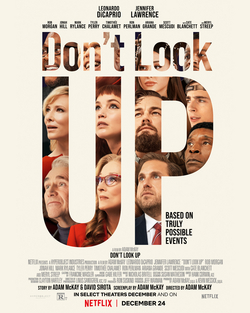
15. Armageddon
This space movie has an alternate scenario wherein something is actually done about an incoming apocalypse constitutes the plotline of 1998’s Armageddon. An asteroid the size of Texas is set to hit Earth in less than three weeks, and it is up to Bruce Willis’s character, a no-nonsense oil driller, and his crew to stop it. Featuring plenty of Michael Bay’s signature explosions, a love story, and a killer song courtesy of Diane Warren and Aerosmith, the film is a 90s classic in space, though most of its physics and logistics are pretty much baloney. Yes, the plot is not to be taken too seriously, but despite its depressing premise, the (sometimes unintentional) comic relief and occasional cheese make for a simple, fun action flick.
16. Arrival
The 2016 Arrival is a movie about space that takes a fresh look at another potentially apocalyptic scenario: aliens landing on Earth. We follow a linguistics professor who, at the command of the US military, is tasked with interpreting the mysterious language spoken by visiting extraterrestrials. But this is no ordinary alien film. The guests are confined to their floating egg-shaped ships, and the reason for their visit is not immediately clear. While also exploring how the situation would be handled by various governments, the movie focuses on the aliens’ message, and tantalizes the audience with its handling of time and even love. Accompanied by a haunting score by Jóhann Jóhannsson and Max Richter, the moody, evocative film is best summed up by Sam Lansky writing for Time: ‘a movie about aliens for people who don’t like movies about aliens’.
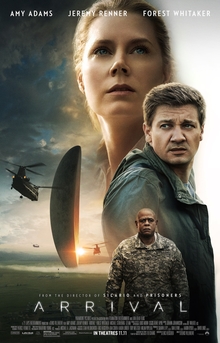
17. Prometheus
One more movie about space and aliens, 2012’s Prometheus, showcases another take on aliens and the role they might play in human life. The film, imagined as a prequel to Alien and also directed by Ridley Scott, features a crew of scientists and a Blade Runner-esque droid searching for clues to the origin of life in deep space. They are on the hunt for so-called ‘Engineers’, who – you guessed it – are thought to have engineered human life. Led by a star map found on Earth, the scientists believe they were invited by their predecessors, but soon find that things are not quite so simple. The film, as its name suggests, plays with religious themes of how humans came to be, our relationships with our makers, and how humans, in creating artificial intelligence, might be considered ‘engineers’ too.
18. Interstellar
With Hans Zimmer’s dazzling organ store still reverberating through the public consciousness years after its 2014 release, Interstellar is among the most memorable movies about space on this list. It starts off like many sci-fi flicks do: Earth is dying, and humanity needs another home. On the journey to find that home, however, the crew learns not only of new horizons, but of the nature of gravity, love, and unfathomable dimensions not yet available to the current human race. It may take a few watches for the themes to sink in, but elements such as an incredibly accurate depiction of a black hole (its rendering helped by physicist and Nobel laureate Kip Thorne), wacky effects of gravity, and generally stunning visuals can easily be enjoyed by the casual viewer.
19. Solaris
The 1972 Soviet space film Solaris was ahead of its time. Initially, the plot seems simple enough, involving a psychologist sent to the distant planet Solaris to investigate the status of a space station in orbit around it. He finds the station and crew in varying stages of disorder, with some new so-called guests onboard, too. Eventually, a new guest in the form of his long-dead wife appears, though she lacks her original memories. While the psychologist struggles with this scenario – whether she, or his love for her, are real – the viewer is left wondering to what extent love exists in the individual’s mind, as described by critic Roger Ebert. Though the planet Solaris acts as the backdrop and catalyst for these questions, this movie extends beyond the realms of sci-fi and space, posing questions that nag at the core of what it means to be human.
10. 2001: A Space Odyssey
Widely regarded as Stanley Kubrick’s masterpiece, 1968’s 2001: A Space Odyssey means something different to everyone. What makes this one of the best movies about space ever is its intricate and at times puzzling plotline marries futuristic visions of space exploration and artificial intelligence with raw images of humanity, such as early humans and a fetus floating in space. An overarching theme is evolution and the idea of god, with the director noting how the idea of god is relative; superadvanced alien beings, much further evolved than humans, would seem like gods to us, just like we might seem like gods to ants. Still, it is impossible to sum up this space film and its themes here; in fact, watching it is a highly personal experience. Critics, for example, slated the film as pessimistic, while members of the public felt it highly optimistic about humanity’s future. Again, it transcends its setting, using the backdrop of space to examine very human questions.
You may also like: Top 8 New Space Documentaries [+3 All Time Classics]
Honorable Mentions
If the above space movies list is not enough, there is plenty more where that came from. There are several decades’ worth of spinoffs based on Star Wars and Star Trek, newer franchises such as Dune and Avatar, and countless more standalone space movies including Life and Passengers.
The Challenge also deserves a mention here; freshly released in Russian theaters in April 2023, the film beat Tom Cruise and Axiom to becoming to first feature film shot in space by a professional filmmaker. The story follows a surgeon commissioned to fly to the ISS to operate on an injured cosmonaut, the latter played by an actual cosmonaut in a cameo role. Director Klim Shipenko and lead actress Yulia Peresild stayed on the station for almost two weeks, with the director taking on all behind-the-camera work during this period (though not all of the film takes place in space). The film faced criticism for wasting money and ISS resources, though it received relatively positive reviews.
The genre has spawned several series about space, too. The increased screentime and episodic format allows for longer, sometimes more intricate storylines than a comparatively short movie would allow. Star Trek, arguably the most recognizable sci-fi series, is an obvious example. Apple TV’s For All Mankind reimagines the early space industry had the Soviet Union beaten the US to the moon, featuring Martian ambitions and the gargantuan aquatic Sea Dragon rocket brought to life. The Expanse envisions further evolved planetary colonization, and examines political consequences arising from it. Though the sci-fi anthology series Black Mirror is not technically about space, the episode ‘USS Callister’ follows a digital crew onboard a spaceship in a video game, though their thoughts, feelings, and general consciousnesses are very much real.
See also:
9 Most Popular Space Exploration Games You Must Try in 2023
How Are We Going to Colonize The Moon?
The 10 Best Space Companies to Work for in 2023
Best Upcoming Movies About Space
Further installments of sci-fi blockbuster about space franchises like the Dune and Avatar series are set to hit cinemas in the next year or so. Perhaps more momentous, however, is another planned movie to be filmed in space. When exactly this will happen is unclear, but it is set to star Tom Cruise aboard a space-based movie set provided by Space Entertainment Enterprise (SEE) and Axiom. Though the initial setup might be experimental, it might pave the way for more movies to be filmed in orbit as space travel becomes more affordable. Still, that possibility remains unlikely for the near future, as does the majority of plot points described above.
While reality certainly seems less exciting than the wild worlds of sci-fi, it also means not being plagued by space wars or rogue spaceships. For now, those things vanish with a click of the remote. In the meantime, we can find solace in the boundless imagination and creativity that the best space movies bring to our screens, allowing us to explore the mysteries of the universe without ever leaving Earth’s atmosphere.
If you found this article to be informative, you can explore more current space news, exclusives, interviews and podcasts here.
Featured image: Credit: Tima Miroshnichenko: https://www.pexels.com/photo/clapper-board-in-green-surface-5662857/
Share this article:




